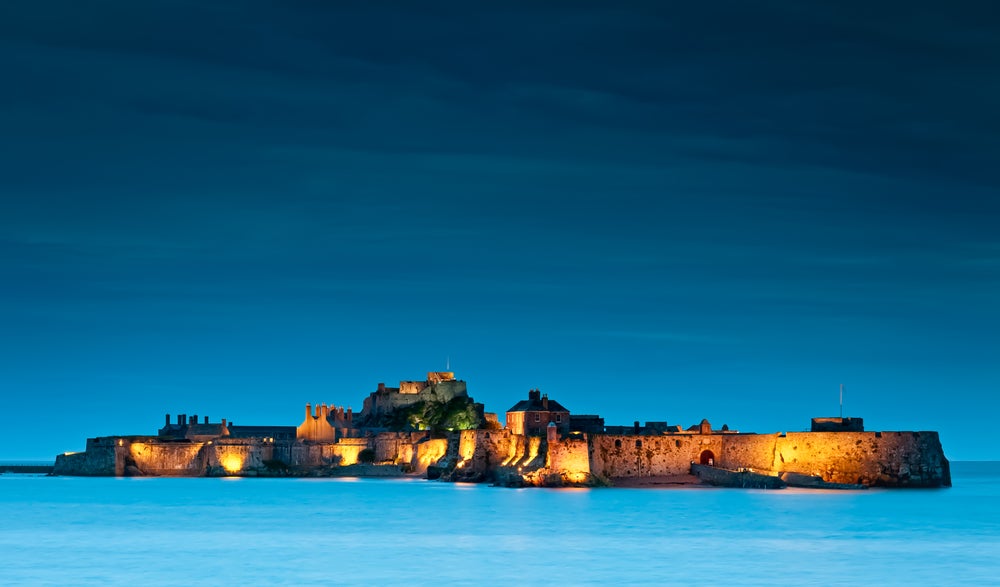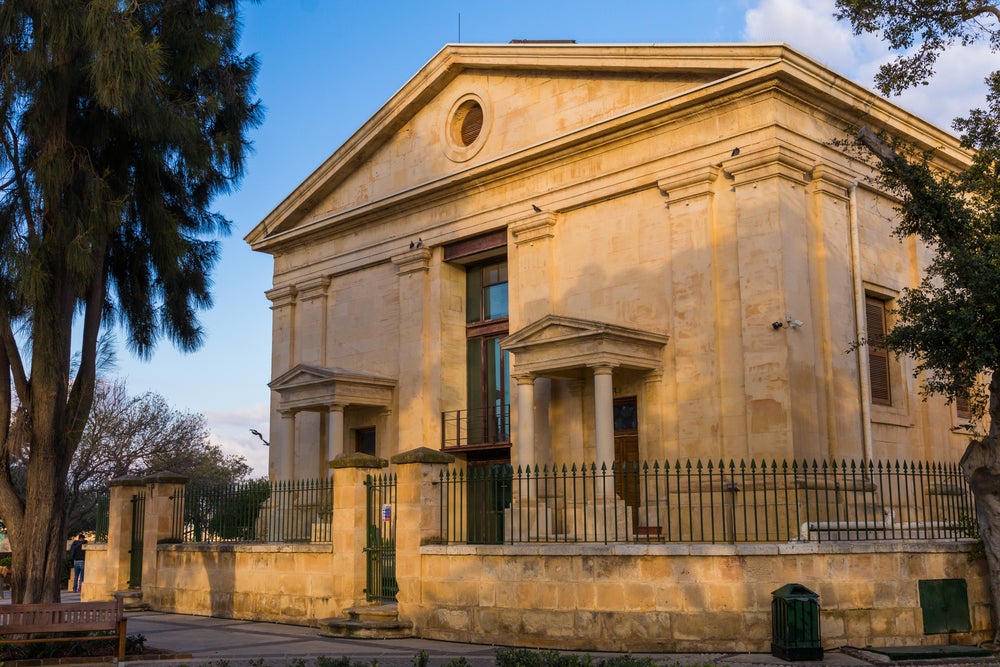
Amidst a European power struggle, a handful of principalities, duchies, dependencies and islands are pulling out the stops to attract foreign wealth. But who will win this charm offensive? Oliver Williams reviews the contenders.
Monaco

A country that has more millionaires per capita than any other hardly needs extra. However, Monaco, where a third of residents are millionaires according to WealthInsight, is becoming too expensive for them.
Last month, the UK’s richest person, Jim Ratcliff, said he was moving to the Principality, joining the nine other British billionaires The Times estimates live there. Hurun, which publishes an annual rich list, reckons there are a total of 14 billionaires in the principality, making it a clear favourite for British billionaires.
There is a reason that Monaco is attracting more billionaires than mere millionaires though. To become a resident you need to have at least half a million dollars and live there for six months of the year. That in itself is not cheap: property in Monaco is the most expensive in the world, according to Knight Frank. In Monaco, $1m buys you 16 square meters, half that of London.
The wealth management landscape of Monaco is reflecting this upward mobility. Gone are many of the private banks catering to the merely wealthy: HSBC withdraw their presence from the country in 2016 and Credit Suisse sold theirs to J. Safra Sarasin the year after. Also in 2017, Compagnie Monégasque de Banque (CMB) – Monaco’s main private bank – closed its London office.
Replacing them are family offices catering only to the very wealthy – UHNWIs and upwards. At least 40 exist in the principality (though exact figures are uncertain) and a host of fund and service companies surround them.
Luxembourg

There are few beneficiaries from Brexit so far, but Luxembourg is surely one. Since Britain voted to leave the European Union (EU) in 2016, Northern Trust, JPMorgan, Columbia Threadneedle and MJ Hudson are among those announcing Luxembourg-contingency plans.
Like many, MJ Hudson, an asset management consultancy, set up a Luxembourg office in order to maintain passporting access to the EU’s financial markets, something Britain is set to lose after it leaves.
Matthew Hudson, CEO and founder of MJ Hudson says “Its all about the passport. In banking there’s something called equivalence. But in asset management there’s no such thing.”
Equivalence in financial markets means trades can take place between EU and certain non-EU exchanges with no disruption. However, the EU threatened to withdraw equivalence of Swiss markets last year, unless concessions are made to workers rights, causing many Swiss banks to set up or enlarge in Luxembourg.
“We’ve seen quite a lot of movement over the last six to 12 months,” Sascha Bremer a business development advisor at Luxembourg For Finance, told PBI. “It’s not just everything Brexit related, though, you had a number of banks setting up prior to that.
“The Swiss have chosen Luxembourg as their headquarters for their European activities. You have UBS, Julius Baer, Pictet and others all here.”
While Luxembourg might be a second home to many major financial firms, unlike Monaco, however, it is not even first home to many millionaires.
“We’re probably not that attractive per se,” admits Bremer. “We’re not very aggressive in that part. We don’t have golden visas. We do have an investment scheme but we aren’t in the business like other countries.”
Malta

Malta does have golden visas. And it is these that have attracted scorn from the Organisation for Economic Cooperation and Development (OECD).
In October 2018, Malta was among 21 countries and 3 European states blacklisted by the OECD for schemes selling citizenship or residency.
Malta’s ‘Citizenship by Investment’ program has attracted over 1,000 applicants since its introduction in 2014. But the OECD described the program as “high risk” saying it can potentially be misused to hide assets offshore.
“We’re trying to clear up the misunderstanding,” Malta’s finance minister, Edward Scicluna, told PBI. “We refuse 25% of the applicants and Malta’s process is transparent, unlike other countries. So all the names who obtain that citizenship are known and published.”
Among the steps taken to resolve the misunderstanding, Malta has implemented the EU Anti-Tax Avoidance Directive (ATAD) and has incorporated it into domestic legislation.
But while second citizenship schemes provide an easy income, the Maltese government is pinning its financial future on other sectors. Reforms to its financial regulations have so far attracted gaming and hedge fund firms to the island. But its next project is much larger.
“So out of nowhere Malta starts transforming itself into a blockchain island,” says Joe Cuschieri, CEO of Malta Financial Services Authority. “We’ve come up with some fabulous legislation which will, in essence, regulate the blockchain and cryptocurrencies.”
In rolling out a tokenised exchange, Malta will be competing against a host of other islands, states and emirates rushing to do the same. Switzerland, Abu Dhabi, Mauritius, Cyprus and Gibraltar are all planning blockchain exchanges.
However, Cuschieri believes Malta is ahead of the others: “By the latter part of the second quarter or the mid part of the third quarter of this year, the Malta Stock Exchange will be the first European exchange to be involved in the listing of security tokens”.
Crown Dependencies
There are three Crown Dependencies – Guernsey, Jersey and Isle of Man – and their zero capital gains taxes mean many British companies and individuals have based themselves on these islands.
The Times estimates 1,550 British business owners live on the Crown Dependencies, but who they are is still unknown: Last month the British government deferred legislation forcing Crown Dependencies to introduce public registers of company beneficial ownerships.
Several MPs have decried the deferment. In a co-authored letter, MPs Andrew Mitchell and Margaret Hodge said, “Prospective money laundering taking place through the crown dependencies threatens the UK’s national security”.
Governments of the individual islands have refuted this, saying public registers are not the answer. “There remain question marks over public registers, both in terms of their efficacy and their intrusion into personal privacy,” says Joe Moynihan, chief executive of Jersey Finance.
Besides, such a ruling from the UK on domestic matters is unconstitutional, they argue.
The standoff is unlikely to dent the popularity of Crown Dependencies, however. Many major private banks and wealth managers have a presence on at least one of them and property inquiries and prices have risen following the UK’s vote to leave the EU in 2016.
Aware of the mounting pressure on their secrecy, however, many have started diversifying their financial service offerings. In 2015, Guernsey published a roadmap called, ‘A Strategic Vision for Fintech’ and has since spawned many-a-fintech, including the online wealth platform, Wealthify.
In the Irish Sea, ‘Digital Isle of Man’ operates a Blockchain and Sandbox Office to guide businesses through current and future regulatory hurdles.
The Future of Europe’s Statlets
While regulatory innovation to accommodate these financial frontiers will win some business, most of these European financial centres thrive on their low tax regimes.
But this could come to an end if the EU’s planned Common Consolidated Corporate Tax Base (CCCTB) comes into effect. The proposal, which has so far failed to be ratified, would set out a single set of rules for how EU member states can calculate their taxes.
Many believe the CCCTB is coming closer to fruition. Last June, both France and Germany pledged to support the proposal. Opposition to it will shrink when the UK, which has consistently resisted it, leaves the EU.
“A common corporate tax base would have negative spillover effects in the internal market, such as on the Maltese economy,” Maltese Nationalist Party MEP Roberta Metsola told Malta Today.
Not all statelets are worried, however. “We have always been mandating that there should be a level playing field for everybody”, says Bremer. “If tax was really the issue we wouldn’t have got all the business here in the first place.”







